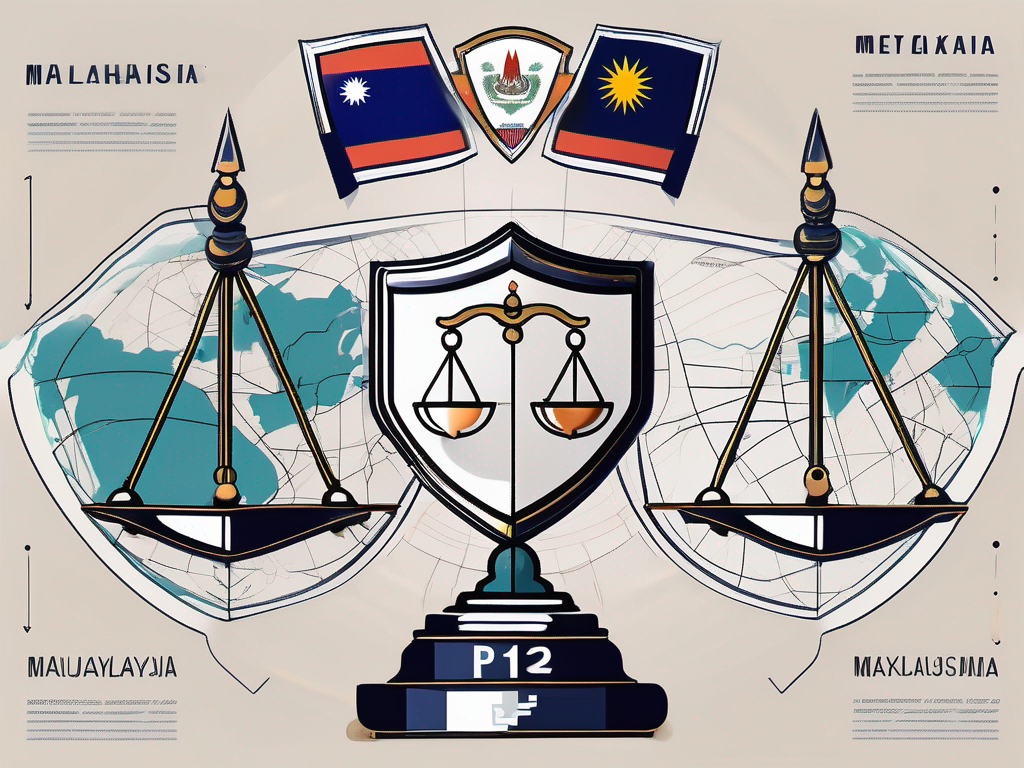AML/CFT Compliance in Malaysia: A Complete Guide for Fintechs and Financial Institutions
Contents
As the fintech sector in Malaysia continues to expand, so does the complexity of managing financial crime risks. With increasing scrutiny from regulators and cross-border exposure, financial institutions—especially fintech companies—must adopt robust Anti-Money Laundering and Counter Financing of Terrorism (AML/CFT) practices to remain compliant and trustworthy.
In this guide, we explore Malaysia’s evolving AML/CFT landscape, key regulations, recent updates, and what fintechs need to do to stay ahead of compliance requirements.
Understanding AML/CFT Compliance in Malaysia
Malaysia's AML/CFT framework is governed by the Anti-Money Laundering, Anti-Terrorism Financing and Proceeds of Unlawful Activities Act 2001 (AMLA). Financial institutions are obligated to detect, report, and prevent illicit financial activities while maintaining transparency and accountability in all operations.
Oversight is provided by Bank Negara Malaysia (BNM), which issues policy documents, guidelines, and updates on AML/CFT compliance obligations.
Key AML/CFT Obligations for Fintechs in Malaysia
1. Customer Due Diligence (CDD)
Financial institutions must verify customer identity, assess the purpose of the relationship, and understand the nature of the customer’s activities.
2. Ongoing Monitoring
Businesses must track and review customer transactions continuously to detect anomalies or suspicious patterns.
3. Suspicious Transaction Reporting (STR)
Institutions must promptly file STRs with the Financial Intelligence Unit (FIU) when detecting potential money laundering or terrorism financing activity.
4. Recordkeeping
Transaction records and customer data must be retained for at least six years for audit and investigation purposes.
5. Sanctions Screening
Entities must screen clients against international and domestic sanctions lists, including PEP and high-risk jurisdictions.
Recent Updates in Malaysia’s AML/CFT Regulations
As of 2024, Malaysia has introduced significant regulatory enhancements, including:
-
Inclusion of Counter-Proliferation Financing (CPF) under AMLA, requiring institutions to expand screening and monitoring protocols.
-
Amendments to the Companies Act focusing on beneficial ownership transparency, ensuring more robust identification of individuals behind corporate entities.
-
Enhanced guidelines for digital asset service providers, reflecting global FATF recommendations.
Common Challenges Fintechs Face with AML/CFT Compliance
1. Legacy Systems: Many institutions struggle with fragmented or outdated infrastructure that hinders effective monitoring.
2. False Positives: Basic rule-based systems often generate excessive alerts, overwhelming compliance teams.
3. Limited Expertise: Fintech startups may lack in-house AML specialists or compliance resources.
4. Regulatory Complexity: Navigating evolving guidelines across jurisdictions can be a daunting task without proper tools.
Best Practices for Strengthening AML Compliance
1. Leverage AI-Driven AML Software
Deploy intelligent systems that learn from data and reduce false positives while improving detection accuracy.
2. Implement Risk-Based Approaches
Tailor customer onboarding and monitoring based on risk levels to focus resources efficiently.
3. Train Your Team Regularly
Ensure compliance personnel are updated on the latest red flags, typologies, and regulatory expectations.
4. Automate STR and CTR Reporting
Streamline reporting with pre-configured workflows and system-generated narratives.
5. Engage in Collaborative Intelligence
Participate in ecosystems that share anonymised scenarios and red flags across institutions for faster adaptation to new threats.
How Tookitaki Supports AML Compliance in Malaysia
Tookitaki’s FinCense platform is built to help financial institutions stay ahead of regulatory demands and evolving threats. With a federated AI engine and real-time scenario-based detection, FinCense enables:
-
Over 90% accuracy in detecting suspicious transactions
-
Significant reduction in false positives
-
Support for CDD, transaction monitoring, screening, and regulatory reporting
-
Seamless compliance with BNM guidelines and FATF recommendations
FinCense is also integrated with the AFC Ecosystem, giving Malaysian fintechs access to a global network of AML experts and community-validated risk scenarios.
Conclusion
With regulators tightening oversight and financial crime methods becoming more sophisticated, AML/CFT compliance is a strategic priority for fintechs in Malaysia. Institutions must move beyond checkbox compliance and embrace intelligent, adaptive tools to remain resilient.
By adopting robust AML frameworks, collaborating across the ecosystem, and leveraging technologies like Tookitaki’s FinCense, fintechs can build trust, strengthen regulatory alignment, and lead the way in responsible financial innovation.
Related Posts
Time to reform your compliances
Kickstart your journey by exploring our products or book a demo with us.




